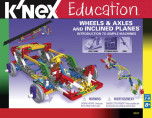We use cookies to make your experience better. To comply with the new e-Privacy directive, we need to ask for your consent to set the cookies. Learn more.
"Eighty-five percent of audience members cannot remember the main point of a speech immediately after hearing it." This statement made by Jeff Myers in the DVD portion of this program is shocking. How can you be a great communicator if most of your audience doesn't even remember what you said? Jeff Myers shares six steps to help you become a great public speaker and overcome that statistic in this program. The kit includes a student text, a 6-session DVD series, and a CD-ROMteaching guide for a group setting. Beginning with lessons on shaping the student himself, he shares the effect that the ability to speak can have on one's entire life and helps students conquer their fear of public speaking. He then moves on to teach the characteristics that shape a great speech: gaining maximum impact, reaching the heart of the audience, delivering the talk with confidence, and tips for an unforgettable speech. Each step consists of an interesting book lesson and a 15-30 minute DVD segment. Every lesson begins with a story of a great communicator from history including Billy Graham, Abraham Lincoln, and Winston Churchill. You then turn to your TV to learn from Jeff, via DVD, the heart of each lesson. Jeff animatedly shares stories and advice as he talks you through each step. Pages in the book correspond to his lecture so you can follow along and take away the important points. The next section reviews the points Jeff shared in the DVD and goes in-depth with each as it provides specific insight and encouragement to help you apply each lesson to your own life and communication. Students are faced with thoughtful questions to answer in response to each strategy and provided with helpful outlines and worksheets in the personal application section of each lesson. Each chapter ends with a speech project, complete with a helpful outline, to enable you to incorporate the skills just learned into your public speaking. Outlines for additional types of speaking, such as introducing a speaker, making a presentation to one person, giving a eulogy, and other instances are provided in the back. Quotes from Jeff and famous people throughout history adorn each page to offer additional insight and tips. Please note that student texts are also available separately for multiple students. ~ Steph


























